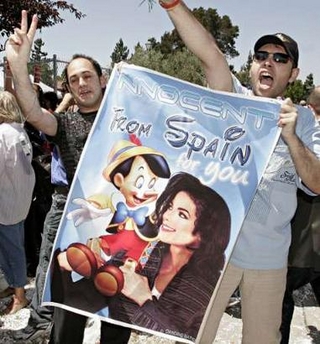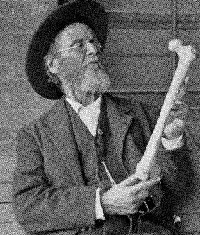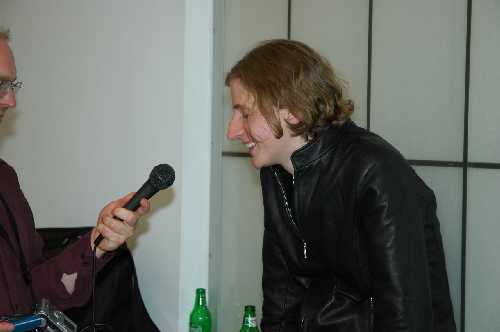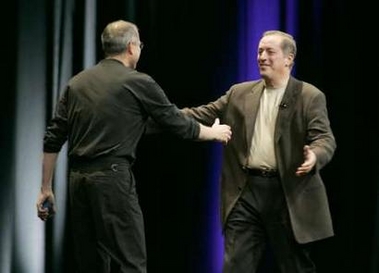
Month / June 2005
The Curious Psuedo-Hero
I’m currently reading Stanley Elkin’s George Mills, an ambitious and resiliently inventive novel about a family line doomed to failure (all of them are named “George Mills” and extend back a thousand years) and susceptible to the throngs of losers, charlatans and fakes that exploit humanity with kooky get-rich-quick schemes and use the various Millses as lackeys and novitiates. Elkin has a considerable bone to pick with astrologers, con men, and even telethon hucksters like Jerry Lewis. What makes George Mills such an interesting read is that the various George Millses are, not unlike Marquand’s George Apley, satirical characters that are written with a quiet sympathy. One hopes that these characters will see the blinding obstacles which prevent them from taking control of their lives. And yet because the reader knows this type so well, they are almost always doomed to failure or a late recognition of their problems.
I’m fascinated by this type of protagonist, because it doesn’t exactly involve a clear hero or an antihero. (For purposes of clarification, I’ll call this character type a “psuedo-hero.”) The interesting thing about Marquand and Elkin is that, by hanging their novels around psuedo-heroes, they both tapped into a wide reception (Marquand with postwar middle-class readers, Elkin with the critical community), only to drop rapidly out of public consciousness. (Most of Marquand’s work is out of print. Avon put out a series of Elkin trade paperbacks in the mid-nineties, most of which I was able to find years ago in remainder piles.)
Fortunately, Dalkey Archive Press has kept all of Elkin’s work in print. They also have an essay by Rick Moody about Elkin.
Roundup
- As reported several places, Jonathan Coe has won the Samuel Johnson nonfiction prize for Like a Fiery Elephant: The Story of B.S. Johnson.
- Edward Jones has won this year’s IMPAC award.
- The Blog Story thing is making the rounds. Sarah and Gwenda have offerings.
- In Congo, 1,000 die per day: why isn’t it a news story?
- To hell with Michael Jackson. Apparently, Pretenders frontwoman Chrissie Hynde, who is a big fan of Martin Amis, got drunk and attacked him at a book signing. The moral of the story? Celebrities are scarier than regular Joes.
- Ellen Feldman’s new novel speculates on what happened to Peter van Pels, the boy that Anne Frank had a crush on.
- Haruki Murakami still contends that he’s not part of the literary establishment. There’s also some stuff in the article about writing routines and the like.
- It looks like the Village Voice might be taken a cue from the litblogosphere. Not only has their books section included readings, but they’re now sending Ed Park to cover book signings.
- Online dating services are doing big box office in Australia. We’re talking $15 million a year. What’s interesting is that the people who use this dating services (at least in Australia) seem terrified by the idea of meeting someone at a pub. There are some 1,700 services that exist which cater to specific crowds. And now there’s a consumer’s guide available purporting to explain whether these services actually work.
- Tiffany Murray lists her top ten dark comedies.
- Bono on Bono: Must we feed this man’s ego any further by printing a book on this?
- Birnbaum dances with Alma Guillermoprieto.
- And Galleycat gets to the bottom of this whole eBay ARC-selling bidness.
BEA: The Publishers, Part Two
I had initially hoped that I could give you BEA coverage in one fell swoop, but I collected so much information that I’m going to have to distribute it on a piecemeal basis. So without further ado:
I talked with Suzanne Balaban of Scribner’s. Balaban told me, “We pride ourselves on the readability of our books.” At first, I feared that she was referring to reads that went by so fast that the books in question took less time to complete than a pizza delivery. But she clarified her statement by telling me that she was talking about “books you can’t put down.”
With this credo in mind, Scribner’s has a guy by the name of Tim Winton as their autumn heavy-hitter. Apparently, Winton is an “Australian rockstar” novelist and he has a book coming out in September called The Turning. There are emotional turnings, dramatic turnings and slow awakenings. But apparently there aren’t any apple turnovers involved. Perhaps because they hope that Winton will be a household name here in the States. My professional guess here is that apple turnovers might alienate the Hot Pockets crowd.
Scribner’s also has a new Frank McCourt memoir. This one describes his time as a teacher at Stuyvesant. There’s an emerging writer named Eric Puchner who has a short story collection called Music Through the Floor. a collection of postmodern tales.
But from where I’m sitting, Scribner’s most interesting title might just be Mark Gattiss’ The Vesuvius Club. Aside from being part of the excellent comedy troupe The League of Gentleman, Gattiss also wrote a witty episode of Doctor Who featuring Charles Dickens. The Vesuvius Club is billed as a Sherlock Holmes spoof.
Henry Holt doesn’t have much in the way of fiction coming up this year. But they do have a new Paul Auster novel called The Brooklyn Follies. The novel chronicles a man who comes to Brooklyn to die and who meets his long lost relatives. There’s family dysfunction and Abigail Cleaves promises that the new Auster is one of his lightest and “more accessible” novels.
The folks over at Farrar, Strauss and Giroux seem to be working overtime on the translated novels front. That’s all fine and dandy. But when I encountered them, they were sitting around a table with an open package of Doritos. However, I should point out that, despite being cruel enough to tempt me with a chip (I declined), they were amicable folks.
The big title they’re leading with is Rafi Zabor’s I, Wabenzi. It’s a memoir, but it’s the first volume in an ongoing spiritual autobiography. In the first volume, Zabor becomes a Sufi mystic and takes a pilgrimage across Europe in a Mercedes Benz. And I should point out that “Wabenzi” translates into “Eye of Mercedes Benz” in Swahili.

|
Edith Grossman is in hot demand. Farrar has her on tap translating Mayra Montero’s Captain of the Sleepers. While Montero has been published very successfully in Spanish-speaking countries, she’s faced a bit of a bum rap here in the States. Grossman was requested specifically to translate Captain. One would hope that she was blessed with an agent with considerable business acumen.
Karen Olsson’s Waterloo is Farrar’s major debut novel. It’s a political love novel chronicling a slacker journalist in Waterloo, Texas. The book follows his attempts to do better at life. I was assured by the FSG folks that this novel had to be read to be understood. But then I was getting that kind of hype from everyone.
FSG is also publishing a novel by (wait for it) Scott Turow. The book is called Ordinary Heroes. It’s set in World War II. Turow was inspired by his father, who fought in the front lines. As expected, there’s a legal case in the form of a courtmarial. The idea here is that this novel is “more literary” than Turow’s other work.
But if Turow signals a potential capitulation to a favored author, FSG makes up for it with Christopher Sorrentino’s Trance. This is an underground novel in which every sentence is “laced with edge,” as the FSG people put it. Whatever the novel’s plaudits, I was still quite concerned when they confessed that the book was “positioned how we hoped it would be.” That’s the kind of phrase I often reserve for my own private speculations on BDSM. But no matter: this was the publishing industry. That’s the way things work in New York.
Nicholas Latimer over at Knopf was a nice guy — if only because he put up with my heckling about the Anne Rice novel (MP3 link). But Knopf also has the first Gabriel Garcia Marquez novel in ten years. Latimer didn’t offer many details, but he did say that “it’s going to break everyone’s heart.” Edith Grossman did the translation of this puppy and I sure hope she’s collecting some hefty residiuals.
Knopf also has a “very interesting” Marlon Brando bio that was taken over by David Thomson at the last minute. There’s also an odd husband-wife mystery novel coming out involving a forensic pathologist meeting an assistant DA. The book was written by a husband and wife team. And funnily enough, it’s written by a husband and wife who share the same vocations.
As for the Anne Rice novel, you’ll have to hear the MP3. Needless to say, Rice’s latest book is about Christ between the years of 7-9. And there’s apparently some controversy over Jesus’s “sinless” nature.
By the time, I spoke with Darlene Faster at Crown, Sarah was kind enough to tag along and put up with my caffeinated questioning. I was compelled to talk with Crown because they published Lee Martin’s excellent The Bright Forever, of which I’ll have more to say about in a future post or review.
The Bloomsbury folks were quite mysterious. For one thing, they were terrified by the fact that I had a mike. I won’t name names. They did, however, give me the skinny on several of their titles.
One of Bloomsbury’s flagship fiction titles is Jim Lynch’s A Highest Tide. Lynch is a Washington-based journalist who writes for the Oregonian. The novel takes place in Puget Sound. It tells the tale of a teenage boy who is the first person to see a giant squid alive. The locals descend on him. He becomes a local prophet. He’s a regular kid in love with the girl next door. It’s billed as a coming-of-age story.
They’ve also got a new one from Rats author Robert Sullivan called How Not to Get Rich. It’s a short book that’s a spoof on how-to-get-rich titles. Every year, Sullivan visits his wife’s family on the West Coast, but he doesn’t have enough cash for plane tickets. So the Sullivan clan drives cross-country in a rickety car. The journey here is what comprises this nonfiction offering.
And then there’s Rodney Bolt’s History Play, which dares to portray Christopher Marlowe as a guy who didn’t die off in a barroom brawl. In Bolt’s book, Marlowe goes on to write all of Shakespeare’s plays. The book was apparently quite a sensation in the UK.
But the big news from Bloomsbury is that Dale Peck has a children’s book. Yes, you read that right. Drift House should be out sometime in September. Peck’s inspiration for the book came when he left New York just after September 11 to spend some time on Cape Cod with a friend. Peck’s friend lived in a house just on the coast built by a shipbuilder. The friend woke up the next day and told Peck that he had the strangest dream. It involved a house that took off and went to sea.
Apparently, this so captured Peck’s imagination that he started outlining notes for the story. In Drift House, several kids are sent to live with a professor during the Blitz. The book is inspired by The Lion, the Witch and the Wardrobe and serves as an homage to C.S. Lewis. It’s a magical fantasy of these kids trying to get back to land. There are several adventures, including one on an island where all of the extinct creatures can be found (such as a dodo and a Trojan horse).
I asked the Bloomsbury people if there was any rage or anger in this book. They insisted that there wasn’t and replied, “He’s kind of shed all of that reputation and totally immersed himself into this book.” In fact, Peck himself says that writing this book was one of the most fulfilling and energizing things he’s done in a long time.
Has the kinder, gentler Dale Peck made his presence known? I suppose we’ll have to wait until September.
Fans Unintentionally Give Michael Jackson A Few Ideas About What to Do at Neverland After Not Guilty Verdict

Cats Mastermind Plan to Take Over Earth
The London Times: “They may look like lovable pets but Britain’s estimated 9m domestic cats are being blamed by scientists for infecting up to half the population with a parasite that can alter people’s personalities….Infected men, suggests one new study, tend to become more aggressive, scruffy, antisocial and are less attractive. Women, on the other hand, appear to exhibit the “sex kitten” effect, becoming less trustworthy, more desirable, fun- loving and possibly more promiscuous.”
Two words: cat ladies.
Enough said.
Eleven Years Without an Album = “Unexpected” Reunion to Regalvanize Radar Presence
Linky Linky
While you await the inevitable long-form posts:
CURRENT AFFAIRS:
- Portuguese poet Eugenio de Andrade has died. He was 82.
- The San Francisco Chronicle declares Michael Houellebecq one of the “most compelling novelists today.” He’s also been claimed the “most hated man in Europe.” No word yet on whether Houllebecq will be accused of molesting an infant or whether he will be appearing as a mafioso in an upcoming reenactment of the Kefauver trials for Court TV.
- Is there a detente in literary London?
- Apparently, there’s a concerted effort to break the long-term reading record. 100 hours of continuous reading, according to Guinness. That doesn’t seem so tough, but then I’m an inveterate reader and an insomniac..
- Who is Trevanian?
- Lionel Shriver: “I acted like a man.” That still doesn’t explain the way she kissed her Orange Award.
- Apparently, there’s another version of No Exit written by “John-Paul Sartre.” Was this Jean-Paul’s brother? Or some fly-by-night impostor? Hopefully, the Centre Daily Times fact checkers here will be more diligent in their pursuits than their copyeditors.
- Current theatrical plays are “excellent television scripts” but very few “really show a sense of how to write for the theatre.” That’s the verdict of some anonymous literary manager at a theatre. But if theatre is transforming into what is essentially live television (and the many “theatrical” reenactments of films and television, with their one-man performances of the Star Wars trilogy and the like suggest that this is the case), the interesting question here is how theatre can draw in the short attention spans while remaining true theatre.
- And we’ll be a lot less lazier than this when we offer our final BEA upcoming titles post.
STEPHEN DIXON: For those who caught my post at the LBC site this morning, here’s some more Dixon info:
- Small Mouth Press interview: Dixon has published 425 stories and has “another fifty stories” lying around.
- Stephen Dixon on Thomas Bernhard: Was Dixon influenced by Bernhard’s long paragraphs? (Rain Taxi)
- “Shoe” — early excerpt from I (from 1999).
- From McSweeney’s: J. Robert Lennon, Jonathan Lethem, a Dixon interview, and another excerpt from I.
- Stephen Dixon at work.
- Excerpt from Phone Rings.
Juggling Act
Several unexpected obligations and occurrences over the weekend (resulting in lack of sleep) pretty much derailed my update plans and I’m still catching up. But I hope to get the final BEA post, the latest Tanenhaus watch, and my thoughts on the book-length version of James Kuntsler’s The Long Emergency up in the next few days. In the meantime, I’ve posted a writeup of the book I nominated for the LBC.
Quick Bites
- Which famous modern American poet are you? (Me: Sylvia Plath, apparently.) (via Gwenda)
- There’s an interesting niche blog, Living with Legends, which caters to books for residents of the Hotel Chelsea. This is a nice supplement to the literary map of Manhattan.
- The new Bookslut issue is up and there’s a good interview with Jon Scieszka.
- Still behind on email backlog. Bear with me.
- And my final BEA post should go up sometime this weekend (I hope).
Another Tragic Biography?
Blake Bailey, the author of the Richard Yates A Tragic Honesty who inspired a drinking game here earlier in the year, has a new John Cheever biography coming out. The Boston Globe caught up with Bailey. Thanks to a $42,000 Guggenheim fellowship, Bailey says he plans to spend the next two years explaining how Cheever arrived at his tombstone. (Bailey has until December 2007 to deliver the manuscript.) Which suggests an equally arduous and equally moribund biography of another great writer. But Bailey says that he plans to approach Cheever’s life as “a redemptive fable.” Bailey has already talked to half of his 150 sources and read all 28 volumes of Cheever’s private journals.
McGraw Hill: When Will They Learn?
In 2003, Diane Ravitch’s The Language Police chronicled the often ridiculous lengths that school textbook publishers resort to not to offend anyone. For example, according to some of the mandates, a dinosaur can’t be mentioned because this implies the theory of evolution. Further, no stories or pictures of a mother cooking dinner are allowed because this reinforces a stereotype. (Unsurprisingly, many of these ideas, which involve preposterous gender-neutral rephrasings of questions and promoting abstinence over contraception, were whipped up by McGraw-Hill. One professor, Sean G. Massey, was so furious that he initiated a boycott.)
As if publishing approaches to school textbooks wasn’t absurd enough, McGraw-Hill is now hoping to target children in Canada with ads placed within their textbooks. The Toronto Star reports that McGraw-Hill has been “quietly trying to coax companies into buying advertising space in their texts.”
McGraw-Hill has a history of doing this. In 1999, a McGraw-Hill mathematics textbook featured an equation asking students to figure out how much money they needed to save to buy a pair of Nikes. The outcry resulted in AB 116, banning commercial images in public school textbooks in California.
Hopefully, the Canadians might take a cue from this.
House Kills Public Television Funding
A House subcommittee has voted to cut all federal funds for the Corporation of Public Broadcasting within two years. That’s $400 million a year, comparative chump change in the federal budget, to destroy a broadcasting conduit that offers educational and alternative programming to the public.
These creeps truly want the public to remain uneducated. Super Bowl, yes. Sesame Street and Frontline, no.
Fun with Face Analyzer
 According to Face Analyzer, the following “personality” can be determined from my face:
According to Face Analyzer, the following “personality” can be determined from my face:
Intelligence: 6.5 (Average Inteligence)
Risk: 4.2 (Low Risk)
Ambition: 6.2 (Average Ambition)
Gay Factor: 1.5 (Very Low Gay Factor)
Honor: 4.8 (Average Honor)
Politeness: 6.2 (Average Politeness)
Income: 6.4 ($30,000-$50,000)
Sociability: 5.1 (Average Sociability)
Promiscuity: 3.5 (Low Promiscuity)
My archetype, apparently, is Beta Academic.
Even more shocking, the celebrity face that I match up most with is Richard Gere. I’m not entirely certain about that. He has more hair than I do. But apparently I’m more polite than he is.
Because I’m suffering again from insomnia, I tried seeing if I could hack this system by submitting multiple images of my face in various poses (using the same lighting, the same red tee, the same stubble and the same white wall). When I stuck out my tongue, my income level dropped and my intelligence level dropped nearly a full point. Even stranger, my honor level went up when I took a photo of my face in crazy mode.
Nothing, however, fluctuated beyond a point. Sadly, my promiscuity score remained stable in all poses. I had hoped my gay factor would shoot up, but there was little I could do to get it beyond 1.6.
Whatever one thinks of the accuracy of this test, it does serve as a nice counterpart to Malcolm Gladwell’s “The Naked Face” — an essay from several years ago. The Face Analyzer has a 87% success rate determining race and gender. Unfortunately, there’s little on the Face Analzyer site that indicates how the personality attribute score is calculated. All we know is that the picture is sent to a facial recognition engine, which is purportedly the world’s most accurate software. Too bad they couldn’t name the software they’re using or the engineers and scientists who developed it.
[UPDATE: Tito runs some tests of his own. Apparently, the pre-jailed James Brown is a “white collar” type.]
Burgess’s 99
I’ve been on an Anthony Burgess kick lately. But what I didn’t realize was that back in 1984, Burgess offered a list of the Best 99 Modern Novels between 1939 and 1984, novelists who “have added something to our knowledge of the human condition.”
As can be expected, James Joyce and Flann O’Brien are there. But there are some quirky choices too, such as David Lodge’s How Far Can You Go?, J.G. Ballard’s The Unlimited Dream Company, John O’Hara’s wildly ambitious The Lockwood Concern and Erica Jong’s How to Save Your Own Life.
Beyond this list, there are some interesting revelations about Burgess in the article. For one, Burgess once had “the notion of writing a fiction of a dying man who sees the unfolded Times on his bed and deliriously traces all his past life as though it were the content of that newspaper – news items, editorials, crossword puzzle, everything.” The other thing, and it’s perhaps an invaluable piece of info for those impoverished souls who left BEA with copious swag, is that when Burgess wrote book reviews for the Yorkshire Post, the local post office had to hire additional staff to take in the book parcels. Further, since Burgess was paid a pittance, every two weeks, Burgess would pack two book-filled suitcases and sell all of his review copies at half price.
And You Thought Trekkies Were Out of Control
 Not only did a group of Doctor Who fans kidnap a Dalek on display, but they have severed the Dalek’s plunger arm and sent a ransom note reading, “WE ARE HOLDING THE DALEK CAPTIVE AND IN ISOLATION. FOR THE SAFETY OF THE HUMAN RACE WE HAVE DISARMED AND REMOVED ITS DESTRUCTIVE MECHANISM. WE DEMAND FURTHER INSTRUCTIONS FROM THE DOCTOR. — GUARDIANS OF THE PLANET EARTH.”
Not only did a group of Doctor Who fans kidnap a Dalek on display, but they have severed the Dalek’s plunger arm and sent a ransom note reading, “WE ARE HOLDING THE DALEK CAPTIVE AND IN ISOLATION. FOR THE SAFETY OF THE HUMAN RACE WE HAVE DISARMED AND REMOVED ITS DESTRUCTIVE MECHANISM. WE DEMAND FURTHER INSTRUCTIONS FROM THE DOCTOR. — GUARDIANS OF THE PLANET EARTH.”
Even stranger is the fact that actor Colin Baker (who once played the Doctor) may be sending a message to the kidnappers.
Dr. Bersherloff on Ayelet Waldman
Since people seem content to pay authors staggering sums of money to spill ridiculous items about their personal lives and because this new trend shows no sign of dying, we’ve asked Dr. Heinrich Bersherloff, a “recovering psychiatrist” with an emphasis in mood disorders, to weigh in on magazine essays and articles that demand careful reading between the lines. Dr. Bersherloff hopes that his work will lead readers to better understand novelists’ neuroses, since their personal lives are apparently what editors want to dig into further. However, I should point out that the doctor is just stepping into his field work after a three-year hiatus.
 THE SUBJECT: Ayelet Waldman
THE SUBJECT: Ayelet Waldman
THE ARTICLE: “Blast from the Past” (Salon, June 6, 2005)
PREVIOUS SIGNS OF NEUROSIS: “Baby Lust,” where Ms. Waldman contemplated child-bearing for the sake of child-bearing, “Living Out Loud,” where Ms. Waldman confessed that she had voiced suicidal urges on her blog and frightened her family in the process, and “Truly, Madly, Guiltily,” whereby getting it on with her stallion, Pulitzer-Prize winning husband was prioritized above and beyond being a mother.
TELLTALE SIGNS FROM CURRENT ARTICLE:
Waldman: “I’d never heard [her two oldest kids] express any kind of excitement about P.E. before — they are not natural athletes — but there they were strategizing and recounting the high points of their respective matches with unprecedented zeal.”
Dr. Bersherloff: It is clear that the subject fears that her children might possibly supplant her own achievements. There exists an unfulfilled desire within the subject to excel at athleticism or perhaps throw a discus into the air. Given the subject’s previous depression, her fixation upon age and her expression of disbelief that her prodigy would indeed be excited about P.E. (insisting, for example, that her children are “not natural athletes”), I am forced to suggest that she get out of the house and take salsa dancing lessons with her husband. This will allow the subject to engage in athletic activities, fulfill intimate desires with her husband, and detract her away from her solipsism.
Waldman: “I remember very little about the season other than the ache in my shoulder from holding my hand above my head in a futile attempt to distract the gnats from my face, the sound of my own teammates’ jeers as I made my regular strikeout, and the euphoria of being allowed to take the bench whenever our team had the slightest chance of winning.”
Dr. Bersherloff: In sixth grade, the subject had a traumatic experience while on a softball team. By her own admission, she was isolated and withdrawn, and took solace in these introverted feelings. And her failure at the bat appears to have occluded positive memories such as post-game pizza parlor parties.
While there remains a slim chance that the subject is terrified of pepperoni or Wurlitzers (if this is the case, I suggest “Wurlitzer therapy,” which would involve gradual sessions of cheery Bach fugues played at Pizza and Pipes), it is worth pointing out that the negative feelings here then stem not necessarily on the sports, but from group activities. It is suggested that the subject find a social comfort zone (explicitly without the presence of Quirkyalone types) that permits her to function in regular society. It may be a radical form of therapy to plunge the subject into Manhattan without a purse or a cell phone and observe how she survives over the next 24 hours. But since the subject insists upon writing about every element of her life, this might be the only pragmatic solution.
Waldman: “The game, more important, that exemplified everything that was wrong with my childhood in suburban New Jersey, a short, pasty-faced Jewish girl in a town full of scrubbed, blond, athletic WASPs, their long tanned limbs toned from years of tennis lessons and country club swim teams?”
Dr. Bersherloff: Again, it is not the sport, per se, that is the problem here, but the subject’s dejected sense of herself — the fears and jealousy that she has clung onto for the past three decades. There is a fear here of being different, a lack of confidence that has the subject uncomfortable. Curiously, the difference relates to athleticism. It is this authority’s professional opinion that the subject should stop giving a fuck about these things and live life.
Waldman: “I know it’s fashionable to claim to have been a nerd as a child, to insist on having scrabbled to hold on to the lowest tier of the social ladder, to recount years of torture at the hands of the golden and anointed. Trust me, I know just how trite my history of exclusion is. ”
Dr. Bersherloff: The subject also feels that her problems are trivial and thus unresolved. Instead of confronting her flaws head on, the subject is quite content to wallow in her own misery, again comparing this process against social standards. Getting past this obstacle then is the key to saving the Chabon/Waldman children from almost certain permanent scars.
Waldman: “Nonetheless, as someone who still, at 40, gets a clutch of nausea every time she drives by George Washington Junior High School, I am just not willing to let go of the reins of this particular hobbyhorse.”
Dr. Bersherloff: Patient obstinacy is not very successful in a therapeutic environment. We professionals encounter this all too often and are forced to remain silent as these subjects spill out their moribund tales of self-loathing and fail to see the obvious in front of them. This is one of the reasons why I stepped away. I made the mistake of setting up my practice in a quiet Connecticut town. Hearing endless story after story about the stress and terrors of walking through a Bed, Bath and Beyond was getting to be too much for me.
At 40, one shouldn’t be trembling in front of a junior high school. It is clear that the subject has some signifcant work to do in confronting her fears.
Waldman: “Gym class was, of course, where the strongest, best-looking kids were made captains and chose us spazzes last. More important, it was where the figures of supposed authority allowed them to do so. Forget the work our parents did molding our minds and values. Everything fell apart as soon as we put on those maroon polyester gym suits.”
Dr. Bersherloff: Again, it is appearance that is the problem. It should be noted that the subject makes scant reference to her parents. Was then a disparity between the subject’s comfort at home and the subject’s comfort at school?
Waldman: “You can’t play dodgeball. It’s cruel.” (followed by Waldman threatening to call the gym teacher and her children begging her not to call)
Dr. Bersheloff: It is quite possible that the subject is reexperiencing her own parents’ behavior from the other side of the parent-child divide, thus continuing the cycle. Is it possible then that the subject as a child was prevented from experiencing athletics and that this, in turn, led the subject to associate very specific colors and taller, blonder, and non-Jewish people with tremblings of fear?
Waldman: “The National Association for Sport & Physical Education has issued a position paper on dodgeball, and they don’t like it any more than I do.”
Dr. Bersheloff: Dodgeball, serving as a reminder of the subject’s own bad athletic experiences, is then confirmed to be the enemy. The subject’s emotions have already confirmed dodgeball to be pestilent in nature, but the subject hopes that by groping for an authoritative paper, she will keep her own deep-seeded fears at bay.
Waldman: “The thing is, my fantasies about being a parent always involved fighting for my unpopular child, doing for her what my own parents couldn’t do for me when I was a girl.”
Dr. Bersheloff: The subject’s notion of motherhood involves personal wish fulfillment. It seems not to involve the child deciding for herself, but the mother deciding exclusively for the child. Some cynical wags at APA conferences often refer to this disorder as Christina Crawford Syndrome. But I truly hope that in the subject’s case, it is less severe than this.
Waldman: “My children are nothing like me, and they can never quite figure out why I’m laying it on so thick. They aren’t living out my childhood, they’re living their own. ”
Dr. Bersheloff: The subject suffers from substantial delusions about the differences between herself and her children. She is mystified that her children do not fall directly in line with her parental approach and her own interests. I recommend a role reversal playout, where the subject’s children pretend to be the mother and the subject pretends to be a child. Soft padded bats will be distributed in the event that the subject craves a spanking or the subject’s children need to let off some steam. Should the subject come away from this therapy a bit demoralized and demonstrate the same self-centered behavior, then we will repeat the role reversal, but this time include the subject’s husband as father.
PRESCRIPTION:
A long-term therapy program is which the subject can (a) be a more considerate mother, (b) find an appropriate balance of her own needs and the responsibilities it takes to raise children, and (c) stop thinking that she is the center of her own universe.
AM Roundup
- Like the Rake, Professor Fury sings the praises of Jack Butler and reminds me that I’ve yet to pick a Butler book up. The situation will be corrected this week.
- And speaking of the Rake, he finds the real reason to flip through Bookmark Now. And unsurprisingly, it involves Michelle Richmond.
- Collected Miscellany talks wiith Michelle Herman.
- Randa Jarrar depicts BEA from a cabbie’s perspective. (via Maud)
- Megan has her BEA report up.
BEA: Jessa Crispin

[Photo above by extremely nice man who wishes to remain anonymous because of the framing.]
No, you are not seeing things. That’s Jessa Crispin and me talking about the BEA booths, inter alia. Believe it or not, we had a not half-bad conversation.
You can listen to it here (MP3, 5:02).
Morning Roundup
I’m still trying to sift through all this BEA data while simultaneously engineering audio for Segundo. I hope to post more things tonight (particularly on details from various publishing houses). The goal is to get done with all this by the end of the week. In the meantime, check out Bud Parr’s extremely comprehensive coverage, which crosses over with mine and covers a few booths I didn’t get a chance to check out.
Here’s the morning roundup:
- Terry Teachout (who sadly was out of town during BEA week) tackles “Culture in the Age of Blogging.”
- Based on some recommendations from trusted people, I’m more interested in Nicole Krauss the writer then Nicole Krauss the person, but, despite my JSF mandate, even I couldn’t resist this profile, which tells how the two met. Apparently, the two met on a blind date. I leave experts to conclude whether it had something to do with Mr. Foer’s email skillz.
- According to a new scientific survey, successful marriages involve comparable education backgrounds, not socioeconomic strata. Interestingly, education affects the speed at which couples marry and have children. Maybe this explains all those crushes I had on teachers growing up.
- I didn’t check out the Google Print booth at BEA, but IT World did.
- Clay Evans’ review of Sam Weller’s Bradbury bio reveals some interesting details: Bradbury traveled primarily by roller skates well into his twenties and he was a flamboyant irritant to science fiction authors.
- Apparently, some of the tales from the Brothers Grimm can be traced to women. Scholars believe that women provided these tales to Jacob and Wilhelm, and the Brothers Grimm capitalized upon these stories. Perhaps Terry Gilliam and Ehren Kruger aren’t as far off with their film premise as we figured.
- Elizabeth Kostova’s The Historian has received a $2 million advance. It’s an elaborate multi-plotted tale about Vlad the Impaler. The film rights have been picked up by Sony and it has the Susanna Clarke/Michael Faber-style “ten years to write” label written all over it. But is it any good? Laura Miller says it’s good, not great. Publishers Weekly notes that “a lot here lives up to the hype.” The Los Angeles Times thinks its okay, but quibbles with the overwrought prose.
- The Telegraph speaks with Christopher Hitchens. There’s the usual contrarian grenades, including Hitch confessing that he doesn’t find Marilyn Monroe beautiful.
- Yet another example of BEA covered with an amateurish glitterati angle: Wynonna Judd and Kim Catrall described as “leading thinkers.”
- This week’s upcoming film horrors: The Banger Sisters’ Bob Dolman making How to Eat Fried Worms and Akiva Goldman writing a remake of The Poseiden Adventure for Wolfgang Petersen.
- A collection of celebrities playing table tennis (via the Morning News)
- While I was out of town, a man broke the six-and-a-half-hour endurance test at the Masturbate-a-thon.
- Notepad Invaders (via Quiddity)
- Editing Hunter S. Thompson (via Kitabkhana)
The Bat Segundo Show #2
A Working Class Hero is Something to Be
Chip McGrath has an interesting essay on social class in American novels (and culture in general), suggeesting that the poor were quite invisible in fiction until the turn of the 19th century and that a substantial portion of 20th century novels have been devoted to a long tradition of upward mobility worship. McGrath accuses American culture of turning its back on blue-collar life and suggests, “If Gatsby were to come back today, he would come back as Donald Trump and would want a date not with Daisy but with Britney. And if Edith Wharton were still writing, how could she not include a heavily blinged hip-hop mogul?”
No Doubt That This Was What Watson and Crick Had in Mind
We here at Return of the Reluctant take considerable pride in exposing the pressing issues of our time. This includes, of course, the very seminal subject of female orgasms. Interestingly enough, nobody had thought to determine if there was a biological basis for orgasms. Until now.
The answer is yes, indeedy, there is a genetic basis. The results will be published in the August 2005 issue of The American Society of Human Genetics (not yet available online).
But it’s not encouraging. Somewhere between 34-45% of the variation between the ability to orgasm and the inability to orgasm can be explained by heredity. Tim Spector of St. Thomas’ Hospital in London effected these results by using 1,397 pairs of twins, both identical and non-identical.
Criminally, one in three women said they never or infrequently had an orgasm. 14% always had an orgasm during intercourse. 34% always had an orgasm during masturbation.
The hypothesis going around is that the women who can’t obtain an orgasm are more likely to be born and thus the unlikely orgasm trait will be carried over. Why? Well, Spector speculates that women who orgasm too easily aren’t as skillful in selecting potent partners.
If that’s the case, does this mean that female partners who continually use birth control of some kind (or who have no children or fewer children) are more likely to have an orgasm? Raising a kid is certainly no picnic and I would speculate that the higher stress that mothers suffer is going to affect their ability to orgasm. But if there is a genetic predisposition (as Spector concludes)that truly prevents women from achieving orgasm, then at the risk of drawing the wrath of the multitudes here, I’m curious whether there’s a chromosomal corollary between the ability to orgasm and (a) wanting to have a child, (b) willingly placing one’s self continuously in stressful situations (i.e., not being able to relax enough to have an orgasm), and (c) being less inclined to use birth control.
For the men who hope to use this information as an excuse to cop out after ten minutes, I should remind them that sexual intercourse is an act that involves two people in which both are equally culpable or, obversely, equally compatible.
Bush Befuddled by Unexpected Breakdown of Animotronic Prime Minister; Asks for Manual

And the Orange Prize Goes to…
…Lionel Shriver for We Need to Talk About Kevin. Looks like the bookies were wrong.
Because Women Merely Put Out for a Lucky Stud, Marry and Reproduce, and Write “Chick Lit” Novels
I’ll have more to say about this nonsense when I get to the Tanenhaus Brownie Watch, but Sarah and Carrie have some interesting thoughts on the chicklit problem.
The Old Hag in Dolby Digital
If you’re interested in heckling a litblogger, you’ve now got the chance. Lizzie Skurnick will be on WYPR‘s Marc Steiner Show from 12:00 PM to 1:00 PM (EST) tomorrow afternoon. The call-in number is 410-662-8780.
Top o’ the Heap
Last night, I opted to chill out and sleep, seeing as how I hadn’t slept for more than four hours in a week and having a percolating brain to process the copious info I collected was better than being half-asleep at the wheel. This should demonstrate to Mr. Parr that I am, in fact, not as tireless as he claims. But more BEA coverage is coming, along with catching up with the Tanenhaus Brownie Watch backlog and several other fantastic things.
In the meantime, here’s some headlines from the literary front:
- TMFTML unearths a deadly accurate depiction of today’s version of a David Sedaris essay.
- Jose Saramago’s new novel, The Intermittency of Death, will be launched in six nations in Europe and Latin America. There are no details as of yet, but the new book will have “a different style” from previous books. But my guess is that this doesn’t mean much. Given the moribund title, most likely, this means that the limited edition will have a tartan cover instead of a cloth one.
- The bookies believe that Jane Gardam‘s Old Filth will win the Orange Prize tonight. We will find out in one hour, as the prize will be announced at 1845 BST.
- Liars Club author Mary Karr says, “Oh my God! I wake up every day…and I feel like Walt Whitman. I really do. I’ve never been so happy.” We understand that “feeling like Walt Whitman” is a codeword for merging memories with fictional asides and transforming it into a well-received and best-selling “memoir.”
- Even the hallowed Library Journal was seduced by the BEA’s Dark Side (meaning stormtroopers and celebrity).
- Kate Atkinson complains about the “nastiness” of blogs. Well, if we’re so nasty, Kate, I guess we should stop praising you then, eh?
- The marketing for the next Harry Potter is very odd. Rowling will give no interviews to the UK press. And there’s a contest in which 70 youngsters between 8 and 16 will meet Rowling and “grill” her on questions about a book. While it’s doubtful that we’ll find any future Mike Wallaces among this group of urchins, I find it strange that the publisher would go out of their way to ignore journalistic and critical reception. Catering to the readers and fans is one thing, but I predict that, despite the definitive bonanza sales this book will pull in, this ostracized approach may result in a minor backlash.
- Marilyn Monroe’s black book has sold for $90,000 at an auction. Call me practical, but that seems a high price to pay for dead people’s phone numbers. Believe it or not, the book sold more than a painting that Marilyn created.
- Katie Holmes as Wonder Woman?
- “Books are not toys.” Well, you can build your toy house with Lincoln Logs. And I’ll build mine with the 150 books in my bookpile. My guess is that I’ll be having more fun than you, sir.
- Diane Johnson takes a look at several Jane Austen books in the NYRoB. Also, Jonathan Raban on Robert Lowell.
More BEA Coverage
I’m riding on Americanos because of the time difference, but I hope to get some audio and additional reports up tonight. In the meantime, here’s a quick guide to coverage around the blogosphere:
- Ron Hogan weighs in through the conversational front.
- Bud Parr (who had a much swankier camera than I did and who offered a fine argument over why I should take digital photography more seriously) has pictures and impressions from the floor.
- Nathalie has captured the crazy crowd I had to storm through at the “Generation Next” panel and has her own perspective on what went down (part of an ongoing series).
- Publishers Marketplace has some good stuff from bookseller Robert Gray and Sarah Weinman.
- There are some great photos from Mary Reagan being unloaded right now.
- Mark Sarvas is still posting before his flight back to Santa Monica (and this workhorse tells me I get the Pulitzer) and has the goods on the book review embargo panel.
- MJ Rose offers a roundup.
- Cantara Christopher is also posting some quick stuff.
If there are any more floating around (or you’ve authored one), drop me an email.
Apple’s Jobs and Intel’s Otellini Work Out Handshake/Hug Compatibility Problems

